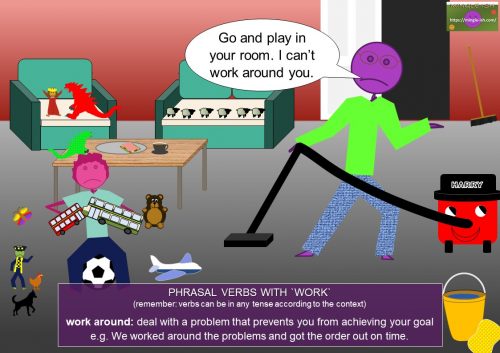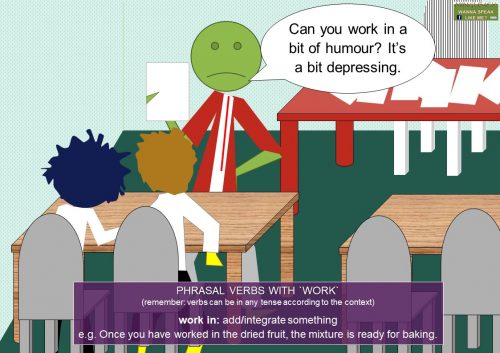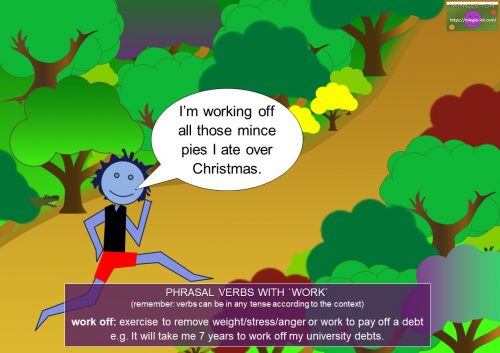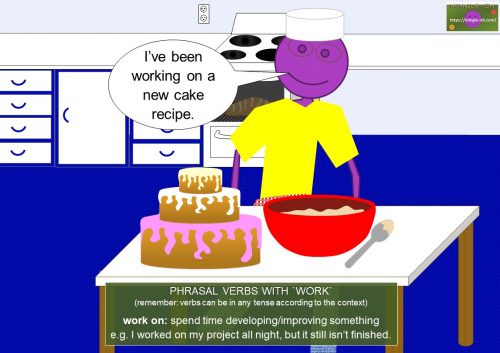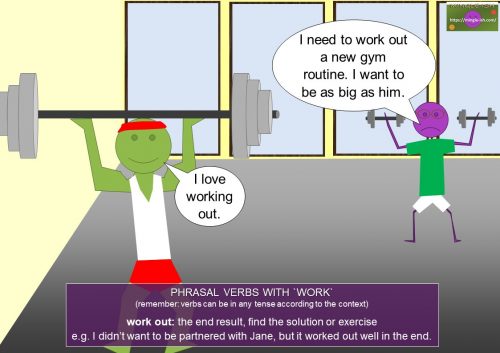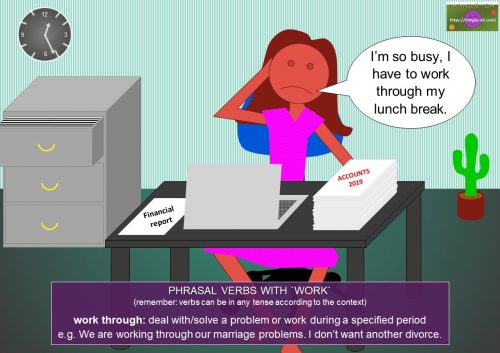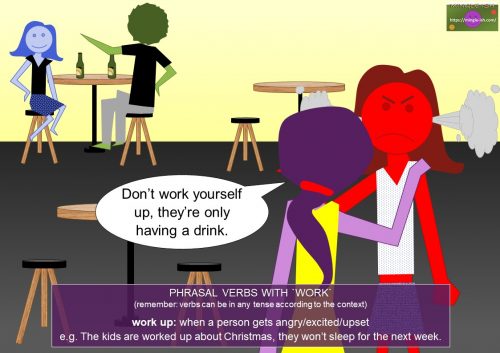The word ‘work‘ can mean many different things. As a verb, the meaning is to perform tasks (often for money) or to function.
For example:
- I’m working on my essay today. (perform tasks)
- My phone has stopped working. (function)
Work is a regular verb. The past tense and past participle is worked.
phrasal verbs with work
Phrasal verbs with ‘work’ include:
- work around
meaning – deal with a problem that prevents you from achieving your goal
example – We worked around the problems and got the order out on time. - work in
meaning – add/integrate something
example – Once you have worked in the dried fruit, the mixture is ready for baking. - work off
meaning – exercise to remove weight/stress/anger or work to pay off a debt
example – It will take me 7 years to work off my university debts. - work on
meaning – spend time developing/improving something
example – I worked on my project all night, but it still isn’t finished. - work out
meaning – the end result, find the solution or exercise
example – I didn’t want to be partnered with Jane, but it worked out well in the end. - work through
meaning – deal with/solve a problem or work during a specified period
example – We are working through our marriage problems. I don’t want another divorce. - work up
meaning – when a person gets angry/excited/upset
example – The kids are worked up about Christmas, they won’t sleep for the next week.
picture examples

Let’s learn the meaning of the phrasal verbs that contain the verb ‘work’ in more detail and see some examples in use.
Did you know that many idiomatic expressions (idioms) in English also contain a lot of verbs? Just like phrasal verbs, idioms are a major part of the English language (slang in particular). They are used constantly amongst native English speakers and are handy to know and understand.
Now you’ve learnt all the phrasal verbs with work, how about learning the idioms with work too?
